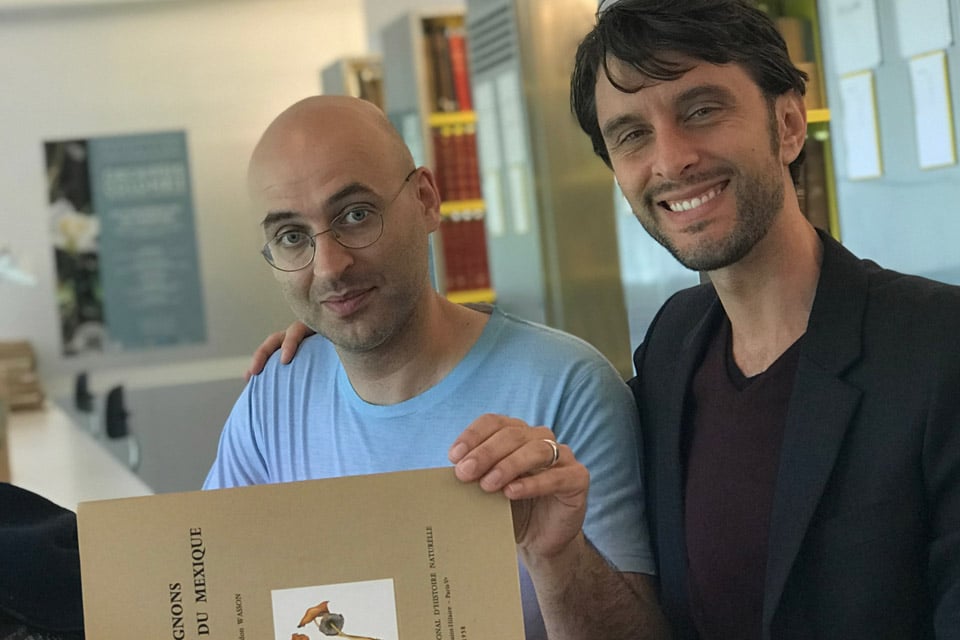
During a recent trip to France, Psychedelic Times co-founders Joe Mattia and Lana Baumgartner met with psilocybin researcher and French Psychedelic Society founder Vincent Verroust. The following is a transcript of an in-person discussion between Lana and Vincent about the past, present, and future of psychedelic science and culture.
It was such a pleasure spending time with you in Paris. It was especially inspiring to learn about your passion for psychedelics and to see how you’ve dedicated your time to research. Can you speak a bit about how you transitioned from your previous profession to what you’re doing now?
Yes, it was such a pleasure for me too! Funny how I strangely insisted to show you Phyllomedusa bicolor at the vivarium at the Paris Museum, unaware of your special relationship with this species…
Yes! We are still in awe of that divine moment when you introduced us to our precious Kambo, in person. We are so grateful for that introduction, so thank you again.
The pleasure was all mine. I love it when I get this impression of having accidentally guessed something meaningful for others…
To answer your question about the transition between my previous work- which was in the field of popularization of science for the public service- and my current investigations in the history of science, well… even though I was deeply enjoying passing on to grade school children my fascination for the living world and weird science stuff, I wanted to get back to research. Actually, my training is in ethnobiology research. I specialized in the study of the symbolic and technical use of nature by the residents of a nature preserve in Guinea, near Ivory Coast and Liberia. When I had the opportunity, I somewhat hesitated to go back to this because of the tragic Ebola outbreak in this region. Also, field research in anthropology can be really exhausting. For instance, I was not adamant to, again, share a bathroom with a poisonous snake, or to catch two different strains of malaria at the same time, or to eat a hard-boiled giant frog with a super spicy slimy sauce for breakfast.
Moreover, and more seriously, after I became a husband and a father, spending long periods of time away for field work became a problem. Also, I knew that the archives of Professor Roger Heim concerning his work on psilocybin mushrooms had remained unexplored. This is how the idea of starting a PhD in the history of science to focus on “the early stages of the research on psilocybin mushrooms and their consequences on the production of knowledge” began to germinate in my mind. I wrote a proposal, which fortunately was very well received by two renowned laboratories in Paris and Lausanne, where I found two wonderful supervisors. I strategically approached this so that my employment contract with the civil service administration would not be renewed, to avoid it becoming a permanent contract. Basically, I used my unemployment benefits to fund my PhD research. I like to say that it’s academic research hacking, in a sense.
It’s clear that you’re resourceful and very dedicated to the cause, which is so inspiring.
Thanks! Actually, France is still set back in terms of the psychedelic renaissance, despite the historical works of Rouhier, Ey, Delay, Heim… It is something that we want to change with the French Psychedelic Society, especially within academia thanks to my dear fellow doctoral researchers.
So what is it that inspired you to begin your research?
Back in 2003, I was a postgraduate student in environmental sciences at the French National Museum of Natural History. During that year, I did a short stay at a remote scientific station in Dinard, on the coast of Brittany. This scientific station of maritime biology was used as a kind of holiday resort by Professor Roger Heim, who was the director of the French National Museum of Natural History from 1951 to 1965. Well, during that stay, while rummaging around in the antique library, I happened to push a door and there I discovered some personal scientific papers of Roger Heim concerning the hallucinogenic mushrooms. Can you imagine my excitement? I photocopied all of it, read it entirely, and kept it like a treasure until I decided, 13 years later, to quit my job in environmental education to dive into doctoral research. I now have access to even more archives- like Heim’s voluminous correspondence with Wasson and Hofmann, for instance. It is so fascinating!
I’d love to pursue my career in academia, and would jump at the chance. But I’m also aware that it’s quite a challenge to achieve, because of the lack of funding in the social sciences. Sometimes I like to compare the situation of unfunded doctoral researchers to that of broke artists living the bohemian lifestyle: in the same way, they experience instability but enjoy doing passionately what they truly want to do… in between periods of stress! To better answer your question: as many do, I want to speak up for the integration of psychedelics in our unsustainable post-industrial societies. In the context of France, speaking up as a “learned guy” with a PhD stamp on the brow is easier- and safer- than speaking up as a user, whose opinion will unfortunately be easily overlooked. Consider the situation we have in France with cannabis policy, or with supervised injection sites, or with a compassionate approach to illegal substances abuse. It’s all so, so backward… I also have the strong desire to revive the memory of Roger Heim’s work and thoughts, for he is not only a forgotten pioneer in the multidisciplinary psychedelic sciences, but also a pioneer in whistleblowing in the area of the current global socio-environmental disaster.
I agree wholeheartedly and love your passion. When did you decide that you wanted to start the French Psychedelic Society?
I think both the Psychedelic Society of the UK and a text of Albert Hofmann inspired me to start the French Psychedelic Society, but I don’t remember exactly when I discovered these two different things. In 2017, I attended two psychedelic weekends directed by Stefana Bosse, and I was really impressed by this approach. It was so good. The society allows for people to have a meaningful spiritual experience: isn’t this the exact definition of sanctity? Actually, I think that the way the event was set up is perhaps what Albert Hofmann was calling for in his text “The Message of Eleusis for Today’s World.” As for me, I’ve always enjoyed sharing with my loved ones what I appreciate: music, movies, art, food, places… Now that, thanks to some life-changing spiritual experiences, I love everyone (well, unfortunately, of course not all the time, to be honest!), it seems that I want to share the fact that some interesting substances exist out there with… everyone! Hence, the foundation of a psychedelic society. I remember cooking rice at a “Psychedelic Weekend” in the Netherlands in March 2017, and asking Stefana “Do you know of any French people wanting to start a Psychedelic Society in France?” And she said: “Yes, maybe-I met a guy, Rojwan, in Prague, at Beyond Psychedelics 2016, who was already thinking the same thing.” Thanks to some emails I sent, I was finally able not only to get in touch with him, but also to find other cool people willing to take part in the foundation of a French Psychedelic Society. We had our first meeting in the summer of 2017. Quite quickly, we started organizing our first events.
This is incredible- I love how all of this aligned. What is your vision for the society? What purpose will it serve?
The French Psychedelic Society is mostly about popularizing psychedelic science and culture. So far, we have focused on science, having organized lectures, screenings and a wonderful colloquium last May with great speakers like Robin Carhart-Harris and other young French researchers in psychedelic studies (namely Zoë Dubus, Martin Fortier, Élise Grandgeorge, Vittorio Biancardi and myself) and also great discussants like Jelena Martinovic and Pascal Rousseau, among others. We want to help build local psychedelic communities by holding space for discussion amongst the users. But also and primarily, we want to speak with the “outside world”: physicians, journalists, fellow citizens, and hopefully politicians. By communicating about the topic, we aim to increase the probability of a wider cultural acceptance of psychedelics, and finally, clinical research with psychedelics in France.
Beautiful! We are happy to support this mission in any way we can. What is your dream for the future of psychedelics?
Well, I dream of psychedelics quietly being part of a society which has evolved to become truly socio-environmentally friendly. Or, maybe better: socio-environmentally affectionate. But I’m afraid it might be in a distant future. Short term, I can definitely imagine psychedelic initiation centers that would look similar to parachuting centers. Your doctor says you can do it, you learn about the risks and how to avoid them beforehand, and you are accompanied by a professional who is savvy with jumping into the unknown. When you have jumped a certain amount of times, you will have validated a license, and then you can do it by yourself.
I do believe we are moving in this direction, and I share your vision. What has been the most exciting discovery for you thus far, in your research with psilocybin?
Well, when I discovered the videotapes of a scientific documentary from 1964 about the hallucinogenic mushrooms of Mexico that was supervised by Roger Heim, yeah, I was really excited! I already had the first half of it, thanks to the video library of my former anthropology lab, but the entire movie was lost. Nobody at the Paris Museum knew where it was, and even the people who knew of it were scarce. Even the foundation that produced it didn’t have a copy- only the original reels trapped in round metal boxes, with moldy labels, double-locked by rust. A kind fellow researcher copied for me a pirate version that had discreetly circulated in Belgium ten years ago, but it is of poor quality. A few months ago, at the Audiovisual Service of the National Museum of Natural History in Paris, I’d been shown walls of cassettes, given a ladder, and wished good luck. I then spent quite some time searching through dusty shelves that no one had touched for a long, long time. I coughed and sneezed a lot, sullied my hands, and soiled my clothes with patrimonial dirt before I was finally able to find two old Betacam tapes. The whole documentary lasts one hour and forty minutes and seems to drag on in some moments; nevertheless, it contains some quite fabulous sequences, like the sublime very first footage of Maria Sabina ever taken, in 1961. There are also some amazing experiments conducted in Paris in 1959 with volunteers who had ingested mushrooms, and the super fascinating follow-up study of the human guinea pigs four years later. One of the volunteers became interested in mystic philosophy, and another claimed that she became kind of psychic! I look forward to potentially translating this from French into English, and subtitling the whole documentary.
I also look forward to publishing all of the funny anecdotes and stories that I gathered through exploring old papers and collecting oral archives with old chaps. I found, for instance, that during the ‘50s Roger Heim’s scientific beliefs were shaken by his own self-experiments, and by his encounter with Maria Sabina, the seer. He became interested, yet maintaining discretion and prudence, in parapsychology. I mean, he was forced to consider the idea of a true divinatory power of psilocybin. I love so much this word that David Luke has coined: “psychedelomancia.” Now that everybody’s talking about microdosing, it would be so much fun if psychedelomancia became the new “most under-researched area” in psychedelic science! But to address this particular topic, one must be intrepid or crazy (and even stupid, some spoilsports might sarcastically add.) After all, divination was the traditional function of psilocybin when the Wassons rediscovered the hallucinogenic mushrooms!
If I may, I’d like to make a public announcement here: if somebody, somewhere in the world, plans to trip and would like to take part in a small ESP experiment, like remotely guessing an image, please write me! And again, if you have money to fund ESP research with psilocybin, please send me some! I have some side projects going on, apart from my PhD in History of Science…
What keeps you going? What inspires you to continue doing this work?
Enthusiasm! Obviously, psychedelics can not only be entheogens, but also enthusiasmogens. [Laughter] Hey, I must coin this term! By the way, “entheogen” and “enthusiasm” have some etymology in common.
[Laughs] This certainly resonates with me: we are pretty enthusiastic over here at Psychedelic Times as well. Can we wrap up with your most meaningful experience with psychedelics?
Well, it’s hard to choose between all the experiences that have had this particular feeling of encountering something sacred. But one of my first strong experiences, back in 2005 I think, allowed me to live my whole life again – which seems hard to believe, because you can’t make your past life fit into a few hours, right? This recollection included repressed memories of being a victim of violence and other painful memories that I was able to view as an observer without reliving the pain. It allowed me to quietly understand why, in certain situations, I had behaved in this or that manner. I better understood a lot of things about myself. It was incredibly psychotherapeutic. I remember being flabbergasted by the simple feeling of being at ease with myself, weeks and weeks after this particular experience. I can’t stress how life-changing this particular trip has been. So, I’d pick that one.
I would be happy to share other memorable moments, like being at a spiritual banquet…
[Laughs] Yes! Please continue!
I was apparently in Heaven, feasting with Egyptian gods, meeting entities, greeting Christian figures like Mary… and then I was given the permission to ask a question to “God” – and my question was answered! I’m still astounded by the fact that I clearly heard a response in my head (it was quite a loud solemn voice by the way, and a very helpful and deep thing to hear.) Also, sharing visions with partners never failed to amaze me, even though I mostly trip on my own. Having the sensation of being temporarily possessed by dead relatives and friends wanting to use my earthly body in order to see this world again through my eyes was very striking and moving too.
There was also another time when my spouse greeted me back at home after I had spent my day alone in the forest, tripping in a hammock. She asked me to guess a number, and I successfully figured out a three-figure number she was thinking of, without any clues! Isn’t this crazy? This brings me back to “psychedelomancia.” I will definitely address this particular topic in my PhD dissertation, and connect to Heim’s allusions to it. It is too fascinating! Oh, another thing… I was in Kurdistan last month, and I had my coffee cup read by a cousin of my spouse. The fortune teller said that sometimes, I see things that others can’t see. She then proceeded to accurately describe the memorable open-eyed visuals I had once of giant, colorful stained-glass windows in the sky. I was shocked! Can you get tired of being stunned and awestruck?
If you’re moved or inspired by Vincent’s work, you can donate here (https://paypal.me/VincentVerroust) or you can contact Vincent directly ([email protected]). The focal point of his current personal research is Psychedelics and ESP, and his academic research addresses the history of psilocybin science. In addition, Vincent is diligently working to build the psychedelic community in France through events and gatherings. Your support of this work contributes directly to the psychedelic renaissance in France.

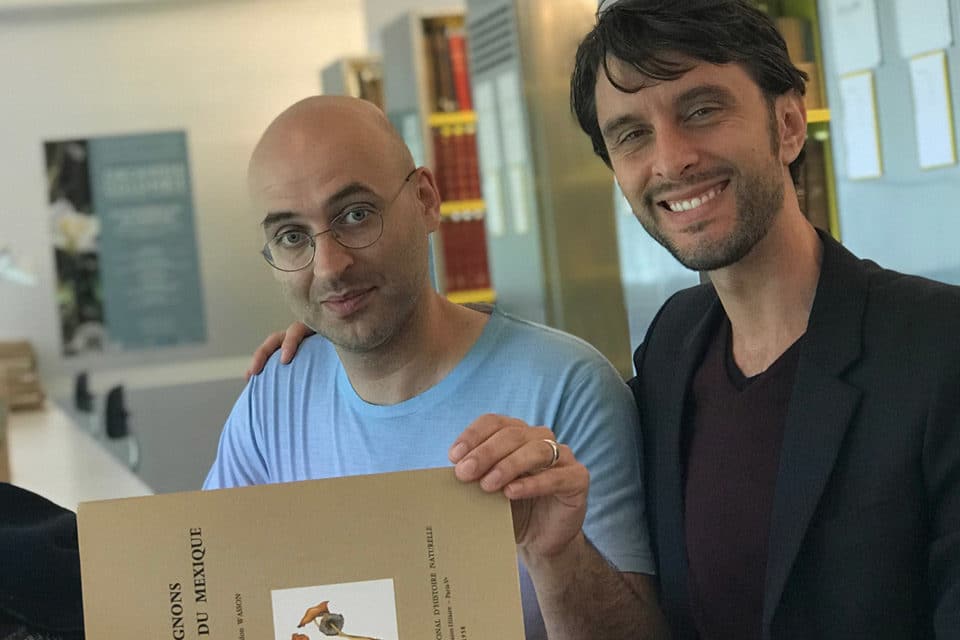
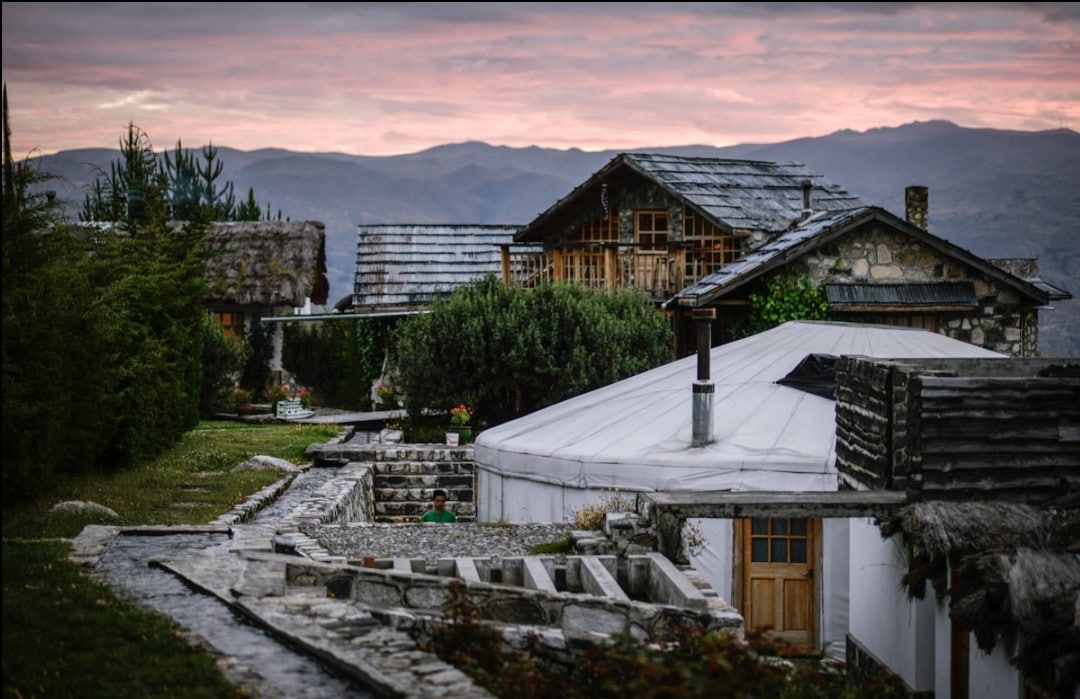
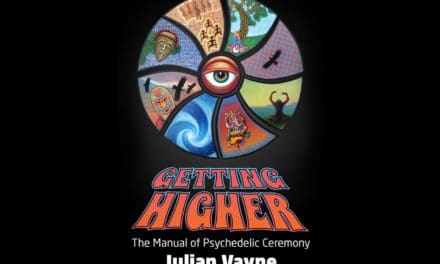

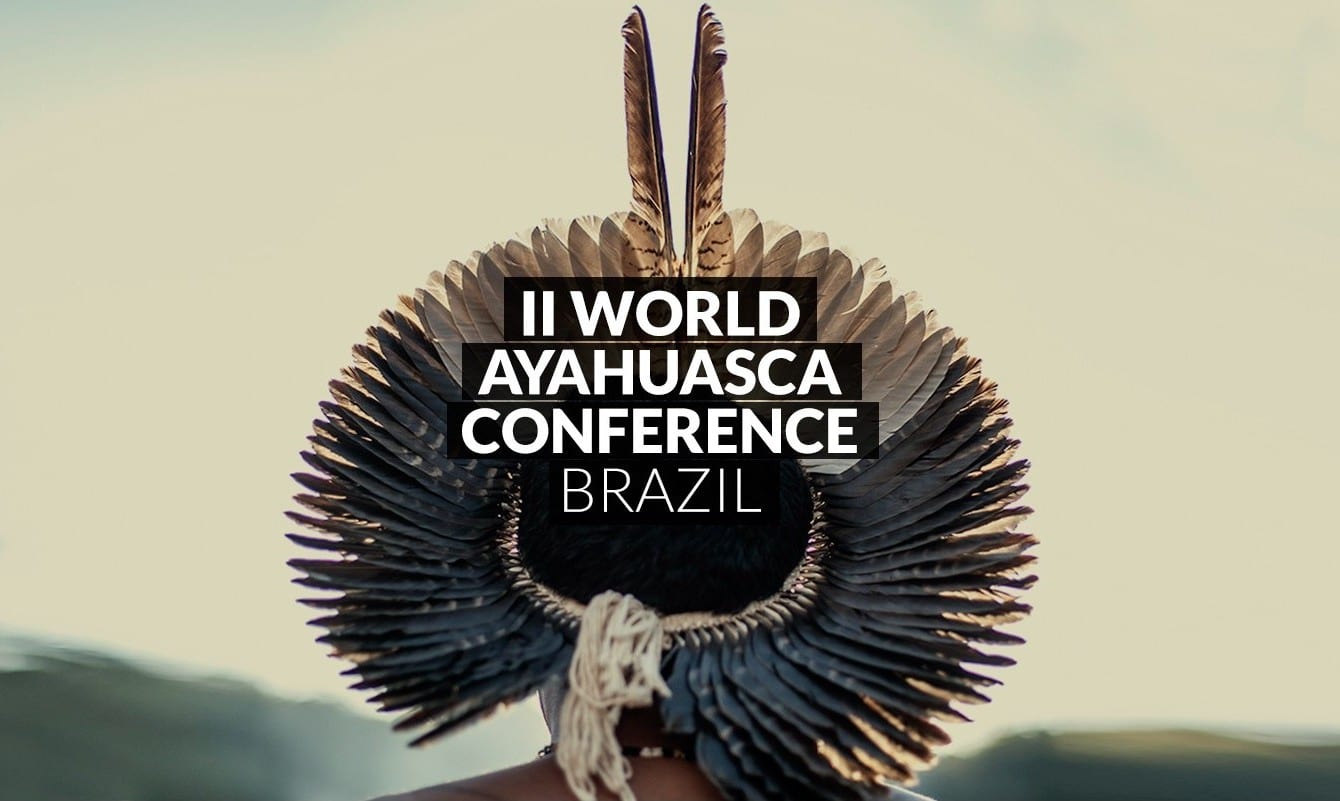





It’s truly very complex in this active life to listen news on TV, therefore I only
use web for that reason, and get the hottest information.